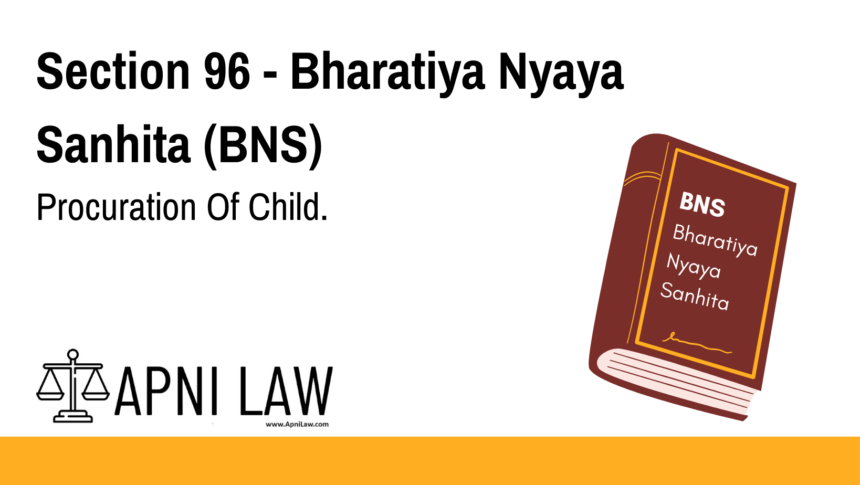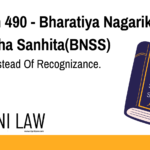Code: Section 96 BNS
Whoever, by any means whatsoever, induces any child to go from any place or to
do any act with intent that such child may be, or knowing that it is likely that such child will
be, forced or seduced to illicit intercourse with another person shall be punishable with
imprisonment which may extend to ten years, and shall also be liable to fine.
Explanation of Section 96 BNS
Section 96 BNS criminalizes the inducement, coercion, or movement of a child with the intent of subjecting them to illicit intercourse. The law severely punishes traffickers and offenders who manipulate or exploit children for sexual abuse.
Key Elements of Section 96 BNS
- Involvement of a Child
- A child refers to any person below 18 years of age.
- Act of Inducement or Coercion
- The offender induces, manipulates, or forces the child to leave a place or perform an act.
- Intent of Sexual Exploitation
- The purpose must be to seduce or force the child into illicit intercourse.
- Even if the offender knows that the child is likely to be exploited, they are guilty.
- Punishment
- Imprisonment up to 10 years.
- Fine (as determined by the court).
Illustrations of Section 96 BNS
Example 1: Luring a Child with False Promises
A trafficker convinces a 15-year-old girl to move to another city with the false promise of a job, but with the hidden intent of forcing her into prostitution. The trafficker is guilty under Section 96 BNS.
Example 2: Kidnapping for Sexual Exploitation
A person abducts a 17-year-old boy and forces him into illegal sexual activities. Since the intent is illicit intercourse, the abductor is punishable under this section.
Example 3: Online Grooming Leading to Exploitation
A predator befriends a minor online, gains their trust, and persuades them to meet in an isolated location for sexual exploitation. Even though there was no force, the intent makes it an offense under Section 96 BNS.
Example 4: Selling a Child for Sexual Exploitation
A person sells a child to another individual knowing they will be subjected to illicit intercourse. This falls under procuration of a child and is punishable under Section 96 BNS.
Common Questions and Answers on Section 96 BNS
1. What is meant by “procuration of a child”?
It refers to inducing, coercing, or moving a child with the intent to subject them to illicit intercourse or sexual exploitation.
2. Is physical force necessary for this offense?
No. Even if the child is persuaded, tricked, or lured, it still falls under Section 96 BNS if the intent is sexual exploitation.
3. What is the punishment under Section 96 BNS?
- Up to 10 years of imprisonment.
- Fine (amount determined by the court).
4. Is online grooming covered under this law?
Yes. If an offender uses the internet to lure a child into illicit intercourse, they can be punished under this section.
5. How is this law different from human trafficking laws?
While human trafficking laws cover forced movement and exploitation of people for various purposes, Section 96 BNS specifically targets cases where a child is procured for illicit intercourse.
Conclusion
Section 96 BNS is a strong legal safeguard to protect children from sexual exploitation and trafficking. It ensures severe punishment for offenders who attempt to manipulate, coerce, or traffic children for illicit purposes.
For legal advice or more information, visit ApniLaw today! 🚀








